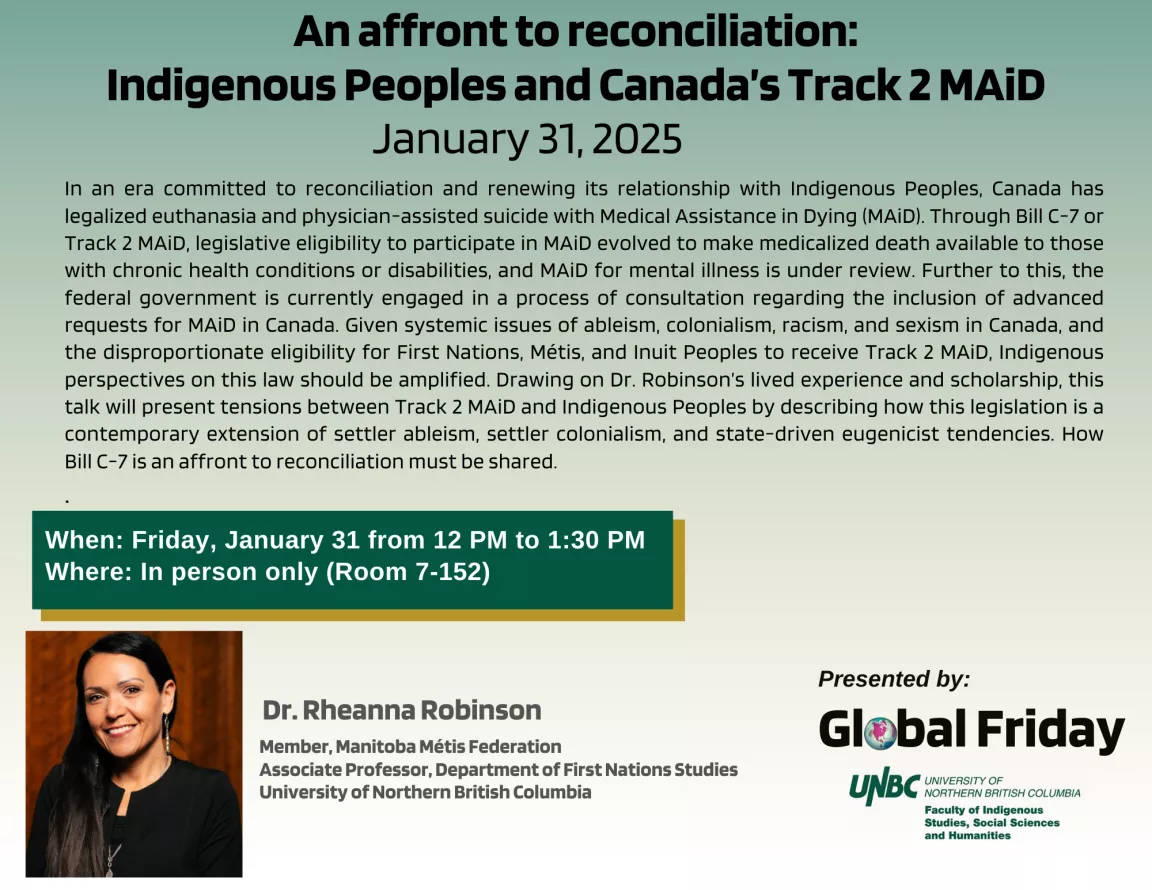An affront to reconciliation: Indigenous Peoples and Canada’s Track 2 MAiD

Dr. Rheanna Robinson, Associate Professor, Department of First Nations Studies, University of Northern British Columbia
Abstract:
In an era committed to reconciliation and renewing its relationship with Indigenous Peoples, Canada has legalized euthanasia and physician-assisted suicide with Medical Assistance in Dying (MAiD). Through Bill C-7 or Track 2 MAiD, legislative eligibility to participate in MAiD evolved to make medicalized death available to those with chronic health conditions or disabilities, and MAiD for mental illness is under review. Further to this, the federal government is currently engaged in a process of consultation regarding the inclusion of advanced requests for MAiD in Canada. Given systemic issues of ableism, colonialism, racism, and sexism in Canada, and the disproportionate eligibility for First Nations, Métis, and Inuit Peoples to receive Track 2 MAiD, Indigenous perspectives on this law should be amplified. Drawing on Dr. Robinson’s lived experience and scholarship, this talk will present tensions between Track 2 MAiD and Indigenous Peoples by describing how this legislation is a contemporary extension of settler ableism, settler colonialism, and state-driven eugenicist tendencies. How Bill C-7 is an affront to reconciliation must be shared.
Speaker Bio:
Dr. Rheanna Robinson is a member of the Manitoba Métis Federation and an associate professor in the Department of First Nations Studies at the University of Northern British Columbia (UNBC). Diagnosed with multiple sclerosis (MS) in 1997, she has lived with an evolving lens of MS-related disease and disability for almost 30 years. Studying Indigenous traditional perspectives and contemporary experiences regarding disability is a primary focus of her academic pursuits where she is committed to mobilizing a greater understanding of the relationship between ableism and colonialism, and how settler conceptualizations of health and well-being impact Indigenous Peoples and their communities.